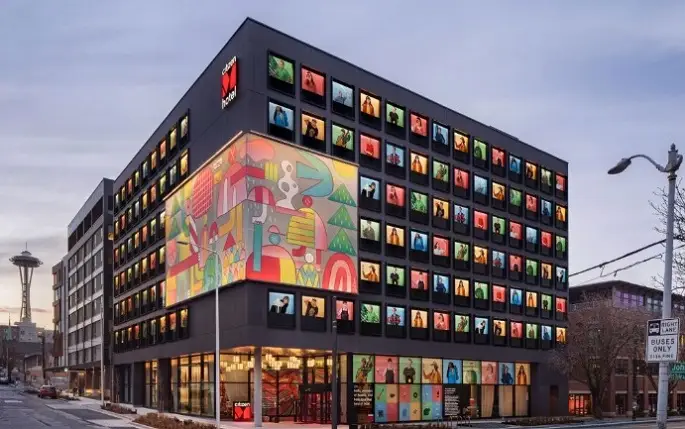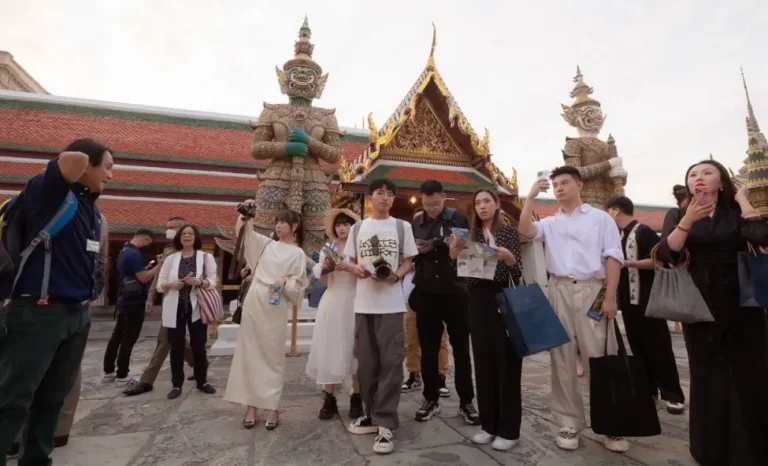
Hotel News: Travel Satisfaction Slips Amid Changing Expectations
Customer satisfaction across the U.S. travel and lodging industries has taken a noticeable dip, with hotels, airlines, rideshare companies, and car rental providers all reporting declines in guest contentment. According to the latest American Customer Satisfaction Index (ACSI) Travel Study 2025, which surveyed 16,771 travelers between April 2024 and March 2025, guest satisfaction in the hotel sector fell by 1%, ending a two-year streak of improvements.

Image Credit: Hilton Hotels
Yet amid this downward trend, Hilton Hotels continues to shine as the top-ranked lodging chain for guest satisfaction, even though its score dropped slightly by 1% to an ACSI rating of 80 out of 100. Close behind is IHG Hotels & Resorts, which actually gained a point, reaching a score of 79. Alternative accommodation provider Airbnb and hospitality giant Marriott International follow with 78 points each. This Hotel News report reveals how legacy hotel chains are adapting—or struggling—to meet shifting traveler demands.
IHG and Boutique Brands Narrow the Gap
The competition in the hotel sector is tightening. Though Hilton maintained the highest customer satisfaction, the increasing popularity of boutique hotels and the growth of hybrid work-and-leisure (bleisure) travel have intensified pressure on traditional players. These industry shifts are recalibrating traveler expectations, especially among high-value business guests who now demand more personalized and seamless experiences.
On the brand-specific rankings, Marriott Hotels emerged as the best individual hotel brand, scoring 82, closely followed by Hilton Hotels & Resorts and IHG’s Holiday Inn Express, both with scores of 81. Hampton by Hilton and Hilton Garden Inn also impressed, scoring 80 each. Conversely, Wyndham’s Days Inn (70), Motel 6 (67), and Wyndham’s Baymont (62) ranked among the lowest, reflecting struggles in the economy segment.
Why Satisfaction Is Slipping Across the Board
The lodging sector is not alone in its challenges. The ACSI report shows customer satisfaction declines across all major travel segments: airlines dropped 4%, car rentals 3%, rideshare services 1%, and online travel agencies 3%. This industry-wide erosion is largely attributed to a mismatch between rising customer expectations and the perceived value of services received, especially from business travelers.
Dr. Forrest Morgeson, Associate Professor of Marketing at Michigan State University and Director of Research Emeritus at ACSI, notes, “Across much of the travel segment, the satisfaction drop is being driven not by bargain hunters, but by business travelers and other high-value customers. With spending patterns under pressure and pricing power fading, providers are going to need to work harder to deliver consistent value across all customer segments.”
Economy Hotels Make Gains Amid Midscale Declines
Interestingly, while midscale and upper midscale hotel brands are seeing declines in satisfaction—primarily driven by the discontent of business travelers—some economy hotels have managed to improve their standing. These brands have enhanced their amenities and food services, which have historically been weak spots, to better attract cost-conscious travelers without compromising too heavily on experience.
Even so, food quality remains the area of greatest dissatisfaction across the lodging industry, while guests were most satisfied with the ease of making reservations. This trend underscores the growing importance of user-friendly digital booking systems, particularly as travelers increasingly choose to book directly with providers instead of relying on third-party online travel agencies.
Airbnb Remains a Competitive Threat
Airbnb continues to pose a formidable challenge to traditional hotel chains. Its satisfaction score remains unchanged at 78—just behind IHG and ahead of several established hotel groups. The brand’s consistent performance reflects strong consumer approval, particularly among millennial and Gen Z travelers who prefer unique, local lodging experiences at competitive price points.
Online Travel Agencies Struggle to Keep Up
The OTA segment, including platforms like Expedia, Priceline, and Booking.com, is also grappling with declining customer satisfaction. Booking.com retained the top spot at 78, but even that represented a 3% year-on-year decline. Orbitz fared the worst, dropping a staggering 10% to 66, the lowest among all online agencies evaluated.
One emerging trend is the consumer shift toward booking directly with airlines or hotel websites, which tend to offer better digital experiences and exclusive perks. This trend is likely to continue unless OTAs evolve their offerings and improve the user journey across their platforms.
Rideshare Satisfaction Drops Slightly as Lyft Edges Ahead
In the rideshare category, Lyft overtook Uber with a score of 77, up 1%, while Uber slipped 1% to 75. The satisfaction gap is partly driven by improved experiences among infrequent Lyft users, though heavy users reported a decline. Key pain points include drop-off ease, driver identification, and driver courtesy—areas that will need attention as competition in the sector intensifies.
Car Rentals See Sharp Declines
The car rental industry was one of the hardest hit in this year’s study, dropping 3% to a sector score of 75. Most notably, National Car Rental, once an industry leader with a score of 84 in 2024, plunged 15% to 71, landing in last place. Customers cited disappointing pickup experiences, poor perceived value, and unhelpful staff.
On the upside, Enterprise climbed 1% to lead the category at 78, while Budget made the biggest gain—up 5% to 77—thanks to improvements in its digital interfaces and pickup experience. These developments underscore the growing importance of technology and operational efficiency in maintaining customer satisfaction.
Implications for the Future of Hospitality and Travel
The findings of the ACSI Travel Study 2025 suggest a turbulent period ahead for travel and hospitality brands. As customer expectations evolve, particularly among high-value segments such as business and leisure travelers, the pressure is on operators to not only maintain but elevate service levels across every touchpoint.
Hotel brands will need to address food quality, improve amenities, and enhance digital interfaces to stay competitive. Those who fail to invest in customer experience—especially amid growing competition from disruptors like Airbnb—risk long-term erosion of brand loyalty.
The ACSI study is a reminder that satisfaction is not static; it must be continuously earned. Hilton’s continued dominance illustrates the value of consistent service and brand investment, but with IHG and even Airbnb closing the gap, the race for customer loyalty remains fiercely competitive.
The study also highlights the importance of listening to business travelers—a group whose feedback often reflects broader systemic issues that, if addressed, could uplift satisfaction across all guest categories. In an increasingly competitive and fragmented market, success will hinge on agility, adaptability, and relentless focus on the guest experience.
The study findings were published in the ACSI Travel Study 2025 and are based on responses from 16,771 travelers across the U.S., covering the period from April 2024 to March 2025.
The latest ACSI Travel reports can be found here: https://theacsi.org/news-and-resources/reports/
For the latest Travel Industry News, keep on logging to Bangkok Hotel News.





